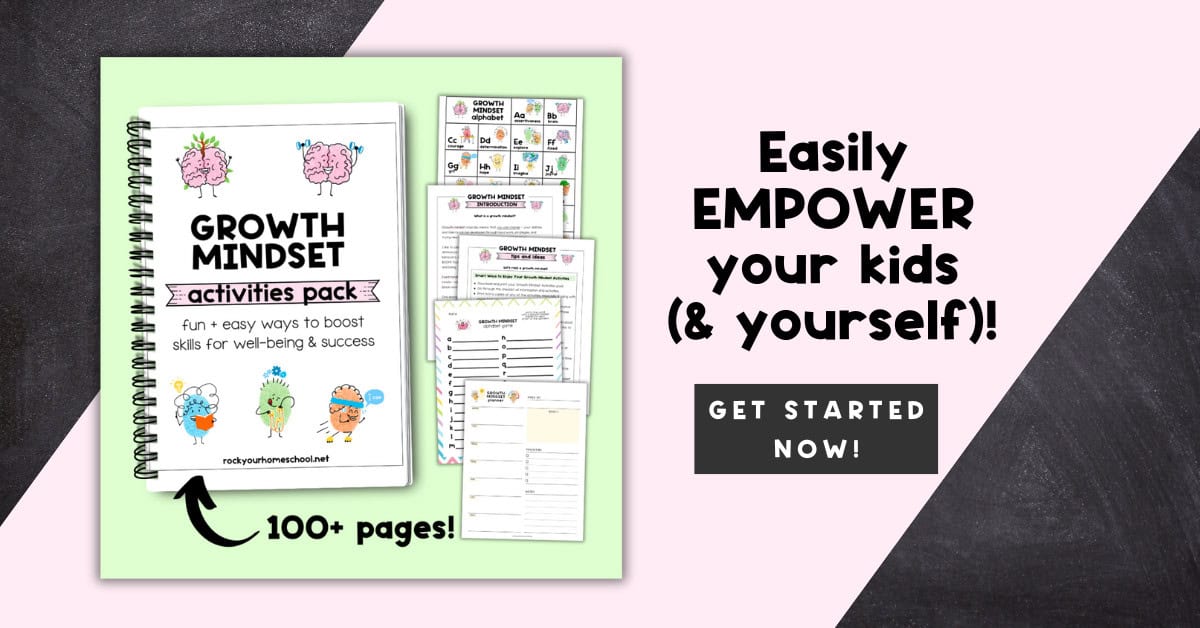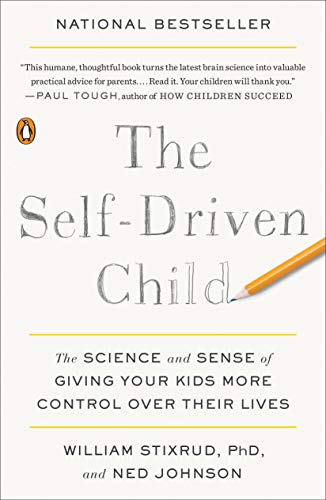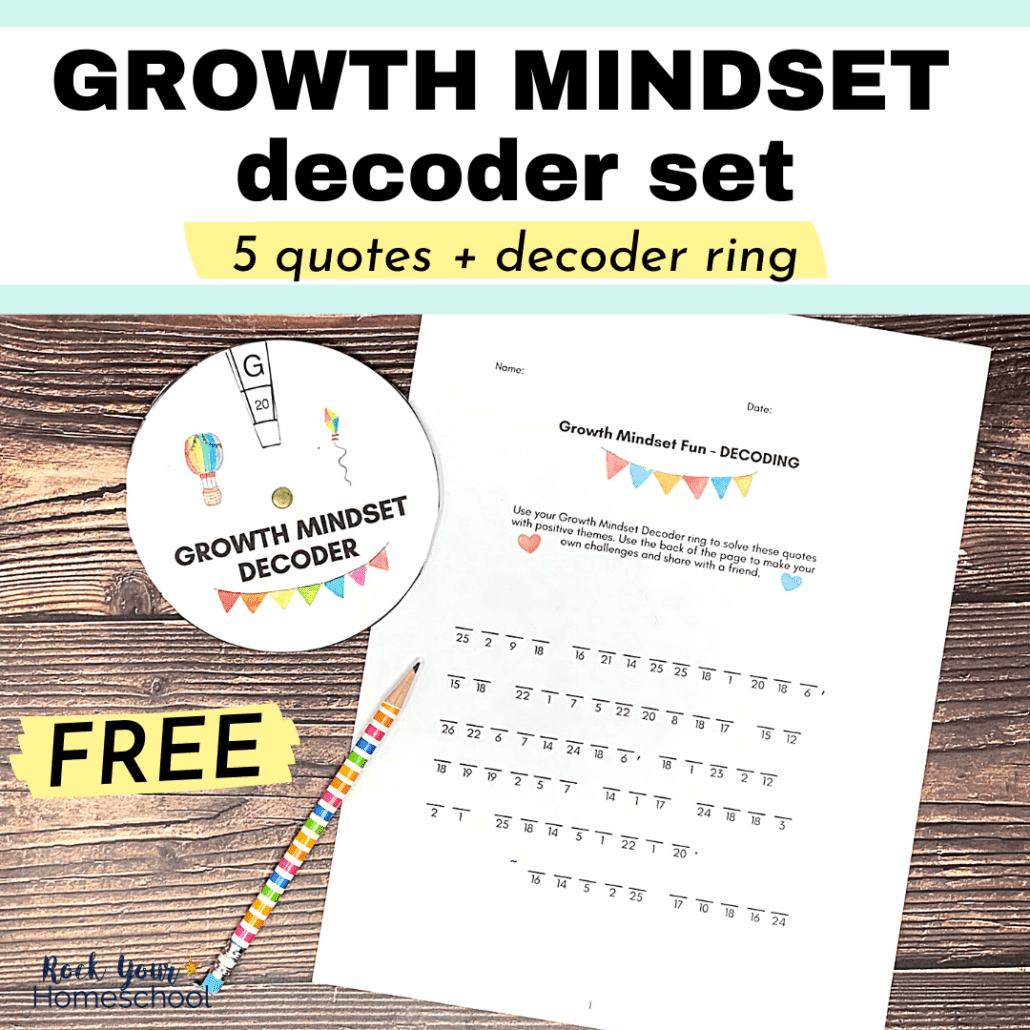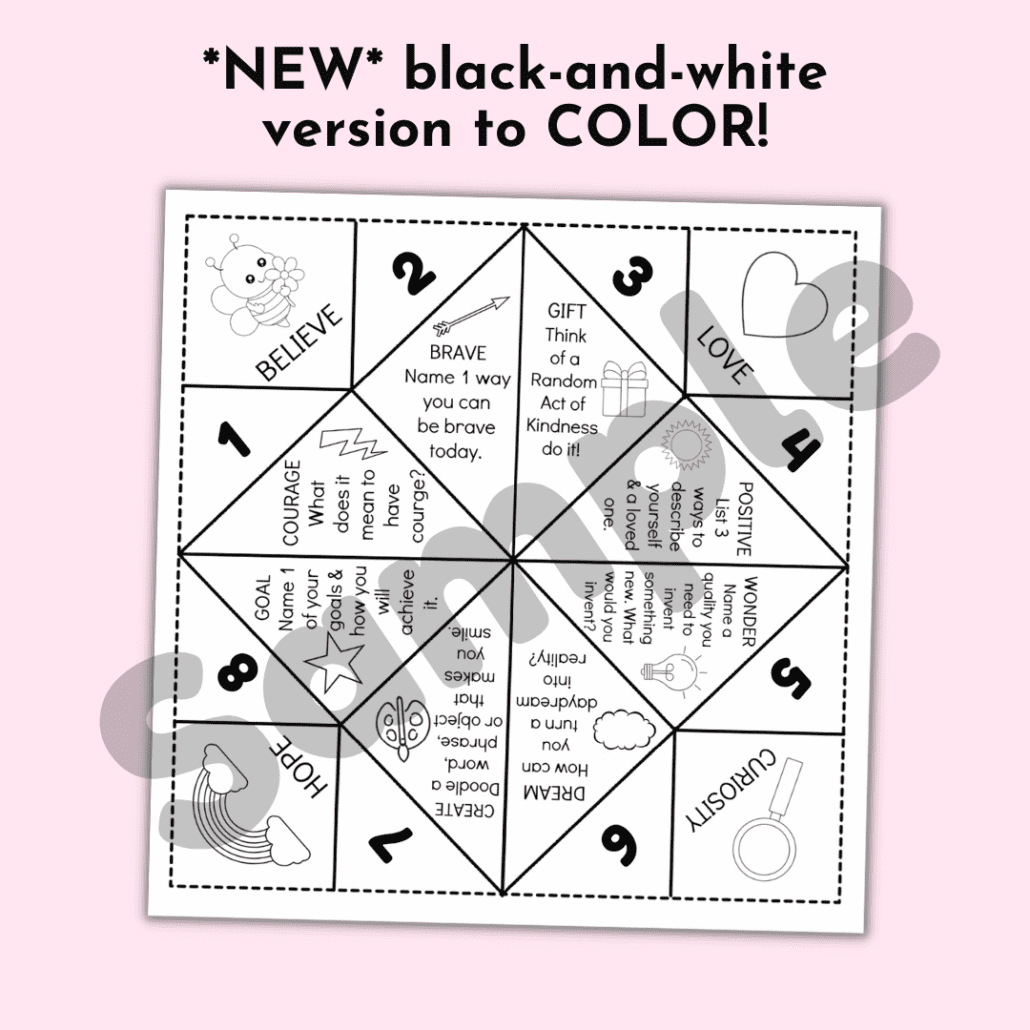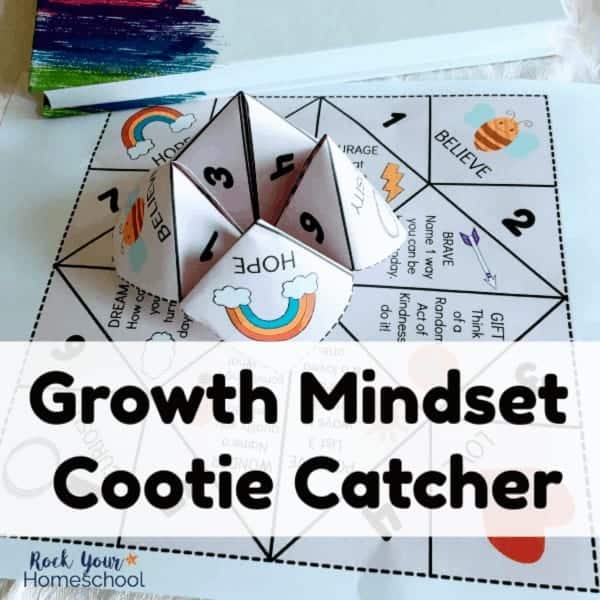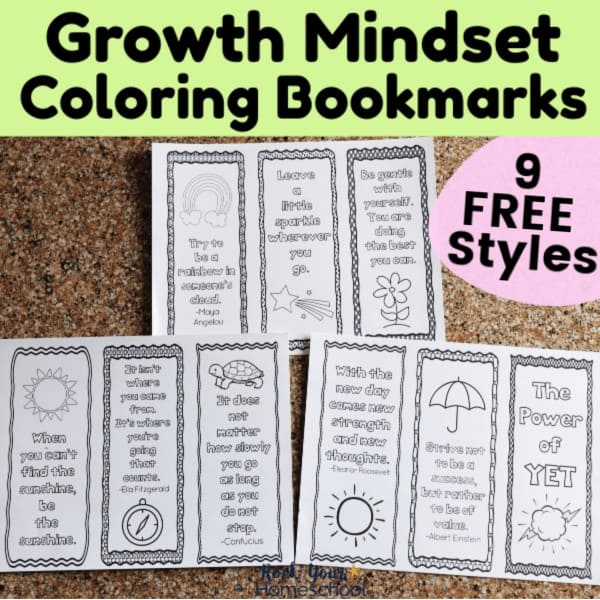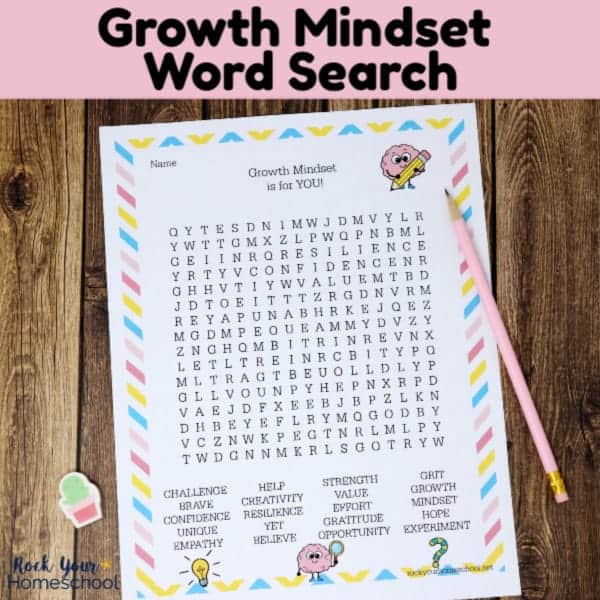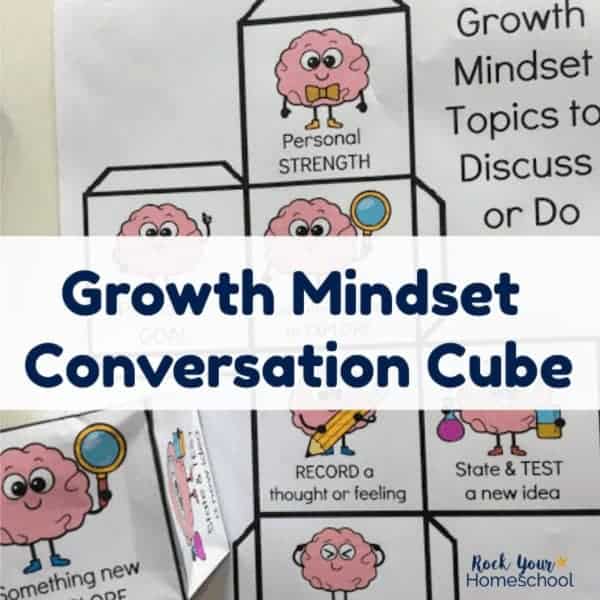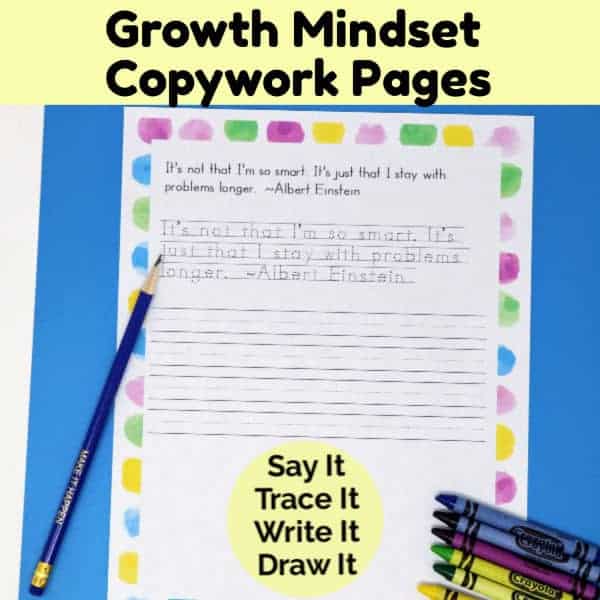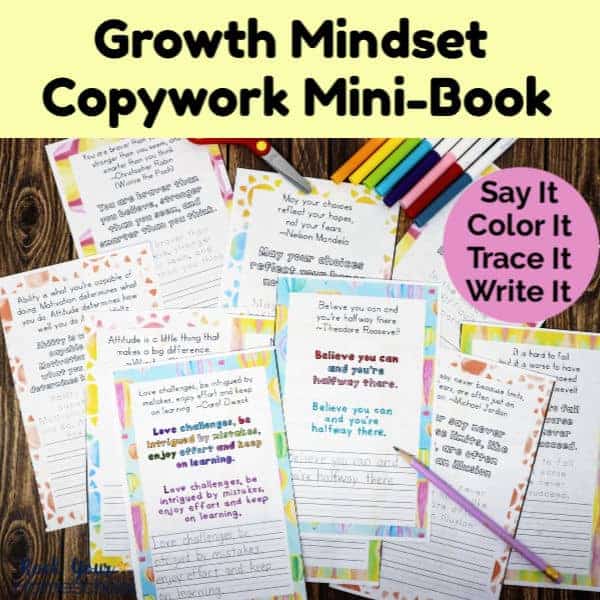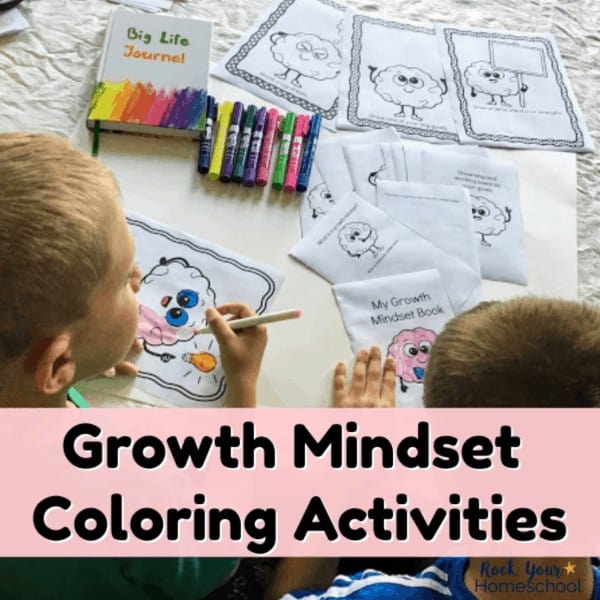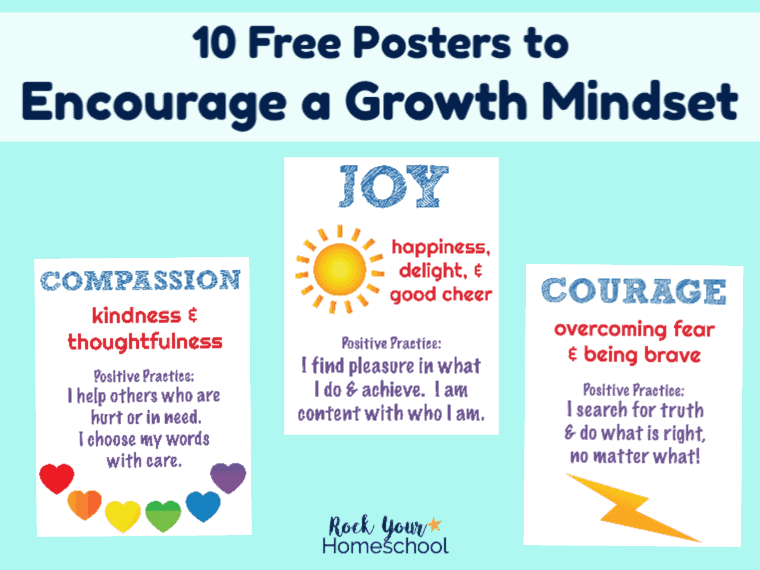How to Easily Encourage a Growth Mindset in Children (& Help Them Enjoy It)
This post may contain affiliate links. Please read my disclosure statement. Thanks for visiting!
Empower a growth mindset in children and enjoy the benefits of these outstanding skills.
If you're wondering how to help your kids deal with struggles, disappointments, negative thinking, and more, discover how you teaching and practicing growth mindset skills can boost their learning and life.
Get tips, tricks, and ideas for encouraging a growth mindset in children by a homeschool mom of 5 boys who just happens to have a background in mental health therapy, too 😉
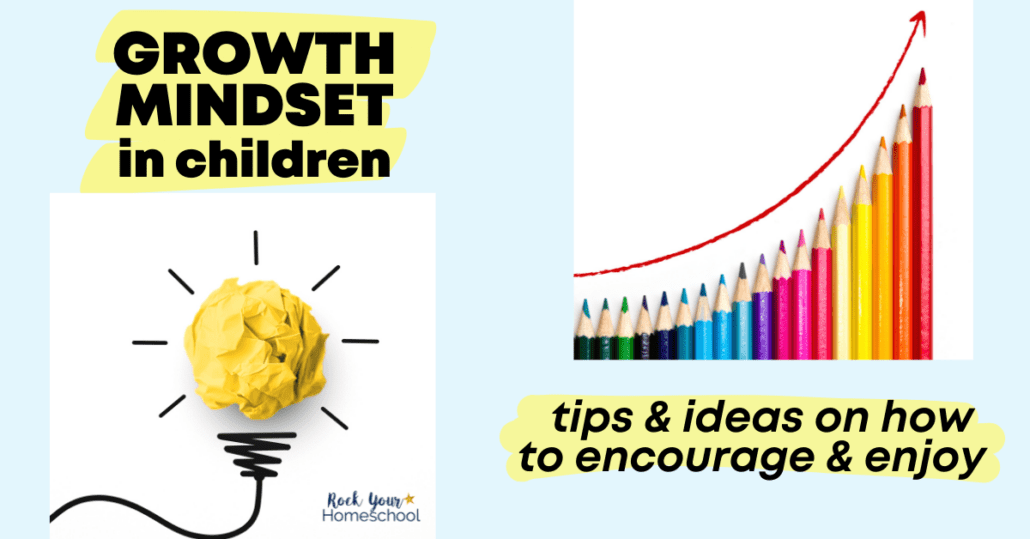
A Growth Mindset REALLY Does Make a Big Difference
Did you know that the growth mindset is something that can be learned? It's true!
Parents and educators can encourage a growth mindset in children by teaching them how to embrace challenges, persist through setbacks, and learn from their mistakes.
Children who have a growth mindset will be able to see failure as an opportunity to learn and grow, rather than as a sign of personal inadequacy. A growth mindset has also been linked to increased academic achievement, better social skills, and improved overall well-being.
Interested in learning more? Let's look at what a growth mindset is and how to encourage it in your children with 10 specific ways to help them develop a growth mindset in their everyday lives.
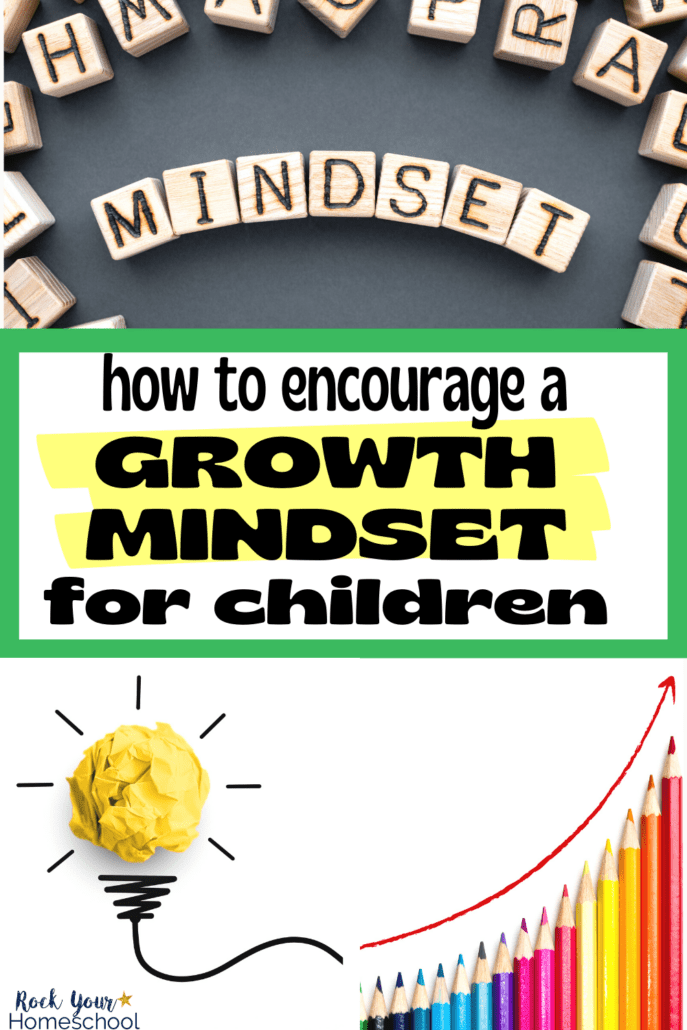
What Is a Growth Mindset in Children?
According to Carol Dweck (the Stanford University professor who coined the phrase based on decades of research), students with a growth mindset "...believe their intelligence, talents and abilities can be developed. Now, students with a growth mindset don’t think everyone is the same or that anyone can be Einstein, but they believe that everyone can grow their abilities through hard work, good strategies, and good instruction."
Dweck's research has such an amazing impact on helping kids of all ages develop and enjoy a growth mindset!
A growth mindset is incredibly beneficial for children. It encourages them to learn and grow through their experiences. This way of thinking allows kids to approach new challenges with enthusiasm, focus on finding solutions rather than on being perfect, and take ownership of their mistakes rather than viewing them as setbacks.
It helps to instill a sense of confidence, resilience, and self-efficacy in kids when they are faced with new challenges or unfamiliar situations. These skills can help your children learn and grow at their own pace without feeling intimidated or discouraged, which ultimately supports their development over time.
Additionally, having a growth mindset encourages kids to take risks, which is important for learning and cognitive development. By viewing mistakes as opportunities for growth rather than threats to be avoided, kids are able to embrace new experiences and expand their knowledge and skillset in new and interesting ways.
Overall, fostering a growth mindset in children allows them to become resilient and confident learners who are better equipped to deal with the inevitable ups and downs of growing up. And that's something that every parent and educator can be proud of!
And What Is a Fixed Mindset?
Sometimes, the best way to really know what a concept means is to know more about its opposite.
A fixed mindset is the belief that your abilities and traits are set in stone and cannot be changed. People with a fixed mindset believe that they are either born with certain talents or they're not.
For instance, a lot of people think that their intelligence is just a fixed trait - you either have it or you don't. However, this isn't actually true! Everyone has the ability to improve their intelligence and learn new things.
This type of thinking can lead to a lack of effort and a fear of failure, as people think that there's no point in trying if they're not naturally gifted. Fixed mindset thinking can also lead to prejudice, as people may judge others based on their perceived abilities.
Fixed mindsets can be limiting, but fortunately, this type of thinking CAN be changed. It's important to remember that everyone has the potential to grow and learn new things. With effort and determination, anyone can overcome challenges and achieve their goals.
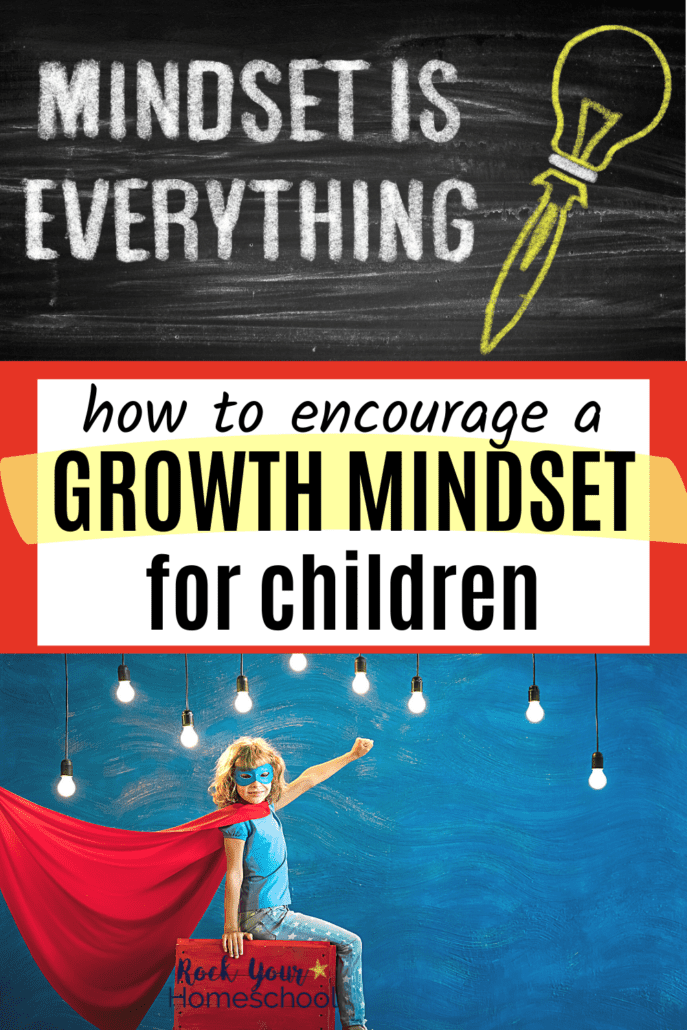
Examples of Fixed Mindset Phrases & Sentences To Avoid
After finding all about the negative with fixed mindset, you probably want to know what you should (and should NOT) be saying with your kids! Here are a few examples:
- You're so smart!
- You have a gift for this!
- You're such a natural at this!
- That was really easy for you.
- You're just not a math person.
- Some people are born artists and others are not.
- She's a gifted athlete, she must have been born with it.
- I'm not very good at this. I should just give up.
- Why bother trying? I'm never going to be as good as him.
- I already know I'm not going to like this.
- That's too hard, I'll never be able to do it.
These phrases and sentences are all examples of things you might say to your child that could inadvertently encourage a fixed mindset.
These phrases imply that certain abilities are set in stone and cannot be changed which is simply not true!
**Please do NOT worry if you've said these types of things before!! If you grew up with this sort of comments (as many of us have), it seems only natural to give the same type of feedback.
The good news: You have the power to end the cycle and practice NEW AND POSITIVE THINKING & BEHAVIORS!
Examples of Growth Mindset Sentences & Phrases That You Want to Use
Instead of using the above phrases, try to encourage growth mindset thinking with the following language:
- You worked really hard on that, great job!
- I can see that you're trying your best.
- Mistakes are how we learn and grow.
- Great effort! I can tell you're getting better and better.
- I'm so proud of how much you've improved.
- You can do it, keep trying!
- Let's break this down into smaller steps.
- I know you can figure this out.
- That was a difficult challenge, but you did it!
- Anyone can learn math with effort and practice.
- Everyone has their own unique talents and abilities.
- With hard work and dedication, anyone can become a great athlete.
- I'm not very good at this yet, but I'm going to keep practicing and I'll get better.
- I don't know how to do this, but that doesn't mean I can't learn.
- I made a mistake, but that's okay! I can learn from it and do better next time.
- I love to see you growing your problem solving muscles!
These growth mindset phrases encourage effort, perseverance and a willingness to learn from mistakes.
These phrases and sentences send the message that everyone has the ability to improve and grow which is an important message for children to hear.
It can take lots of practice and effort to make this type of language into your everyday living. And that's okay - and totally worth it! Both your kids AND you will benefit 👍
I've read (and reread) a few books that have truly helped me to learn more about, practice, and teach as a parent, homeschooler, and mental health therapist. These books include:
Mindset: The New Psychology of SuccessGrit: The Power of Passion and PerseveranceMindsets for ParentsMathematical Mindsets: Unleashing Students' Potential through Creative Mathematics, Inspiring Messages and Innovative Teaching (Mindset Mathematics)The Self-Driven Child: The Science and Sense of Giving Your Kids More Control Over Their Lives
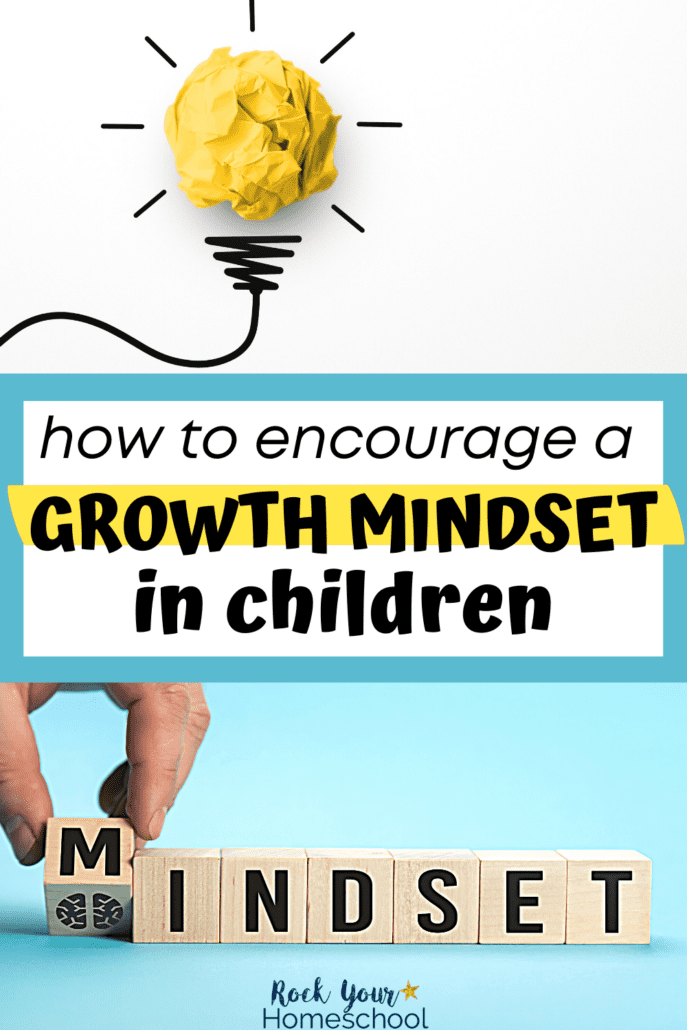
10 Ways to Encourage a Growth Mindset in Children
There are many ways that as a parent (and educators) you can help children develop a growth mindset. Below are ten specific ways you can encourage a growth mindset in your kids on a daily basis:
1. Help them understand that intelligence is not fixed.
Children who believe that their intelligence is just something they're born with are more likely to give up when they encounter difficulty.
Explain to them that everyone has different strengths and weaknesses and that it's okay to struggle with certain things. What's important is how they handle difficulties and setbacks.
Your Fantastic Elastic Brain is an excellent book to read with your kids about this topic.
2. Encourage effort over outcome
A growth mindset focuses on the process rather than the result. Help your child focus on their effort rather than the end goal.
For example, praise your students for trying new things or for sticking with a task even when it's challenging. Remember, it is important to praise them for their effort rather than their intelligence.
Also, instead of saying "you're so smart!", try saying "you worked really hard on that!". This slight difference in wording will help your child to see that it's their effort that counts, not just their natural ability.
3. Help them understand that mistakes are part of learning.
It's important for kids to understand that making mistakes is a normal and essential part of learning. Explain to them that everyone makes mistakes and that it's okay to make them as long as they learn from them.
Use phrases like "mistakes are how we learn and grow" to help them see the value in making mistakes.
4. Encourage them to take risks.
A growth mindset means taking risks and embracing new challenges. Help your child feel comfortable taking risks by encouraging them to try new things, even if they're afraid of failing.
Use phrases like "that must have felt great to try something new" and "I'm so proud of you for taking that risk!".
5. Encourage them to embrace challenges.
Children with a growth mindset view challenges as opportunities for learning and growth, rather than something to be avoided.
Help your child see challenges in this way by encouraging them to take on new challenges and persist when they're faced with difficulties.
6. Help them understand that effort leads to success.
One of the most important things you can do is help your child understand that effort leads to success. Explain to them that hard work, practice, and persistence are essential for achieving their goals.
Use phrases like "great effort!" and "I can tell you're getting better and better" to let them know that you see their efforts and that you believe in their ability to improve.
7. Encourage them to persist and persevere.
Children with a growth mindset don't give up easily. They understand that setbacks are part of the learning process and they persevere in the face of difficulty.
Help your child develop this attitude by encouraging them to stick with it when things get tough.
8. Help them develop a growth mindset vocabulary.
A growth mindset requires a different way of thinking about ability and intelligence.
Help your child develop a growth mindset vocabulary by teaching them words and phrases such as "yet," "not there yet," and "keep trying." Growth mindset activities are wonderful ways to practice this type of positive self-talk.
9. Model a growth mindset yourself.
The best way to encourage a growth mindset in children is to model it yourself. Show your kids that you're not afraid of taking risks and that you're always learning and growing.
Let them see you make mistakes and learn from them. Share stories about times when you've struggled and what you did to keep going. Try to avoid using phrases like "I'm not good at this" around your child.
If you model a growth mindset yourself, it will be easier for your child to develop one too!
10. Help them find their growth mindset role models.
There are many people in the world who have achieved great things through hard work and perseverance. Help your child find their growth mindset role models by introducing them to inspiring stories of people who have overcome adversity.
Simple Yet Powerful Activities to Encourage a Growth Mindset
Teaching and practicing growth mindset concepts and skills doesn't have to be complicated or hard.
Talk with your kids about these ideas. Read books and watch videos that demonstrate what a growth mindset (and fixed mindset) looks like in real life.
And boost all of that awesome learning with activities that reinforce these incredible skills and ideas, using things like:
By following these tips and ideas, you can help your child develop a growth mindset and set them up for success in school and in life.
What are some other ways you can encourage a growth mindset in children? And please let me know if you have any questions about these ideas and resources in the comments area below.

